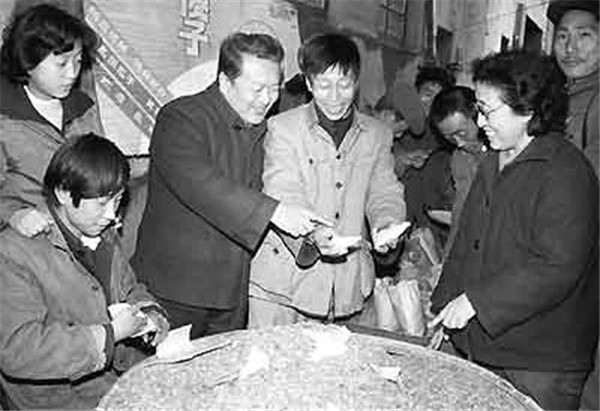Nian Guangjiu, a self-employed businessman who sold sunflower seeds, aroused debate in the early 1980s after he hired a more than 100 private workers.
Deng Xiaoping stopped an ideological battle concerning Nian's "capitalism" practice and thus encouraged the development of private economy in China.
|
 |
|
Nian Guangjiu sells "Shazi Guazi". |
For Nian Guangjiu, originally an illiterate farmer from East China's Anhui province, the socialist market economy may be something difficult to comprehend. But he knows that the concept has been deeply integrated into his life as a private entrepreneur.
Nian started his business in the early 1980s when China gradually changed its attitude towards private economy. Families were allowed to form a "household enterprise" (getihu) in which the entrepreneur himself worked.
Although encouraged by the government's change, private entrepreneurs in China were cautious about hiring workers. Marx's statement in Das Kapital about a capitalist with eight employees exploiting his workers was interpreted as that working entrepreneurs who employed more than seven workers were capitalists.
Observing that the government took no action in controlling the recruitment, Nian Guangjiu, the owner of "Shazi Guazi" (Fool's sunflower seeds), became one of the first to hire more employees. His employment of more than 100 workers soon triggered heated debate until the case was reported to Deng Xiaoping, the architect of China's reform and opening-up.
Regardless of the conservative voices in the Party, Deng said putting Nian's shop out of business would make people anxious and that would do no good. "If we let him go on selling his seeds for a while, will that hurt socialism?"
With this clever explanation, Deng successfully avoided an ideological battle and steered the Chinese economy on the right course.
